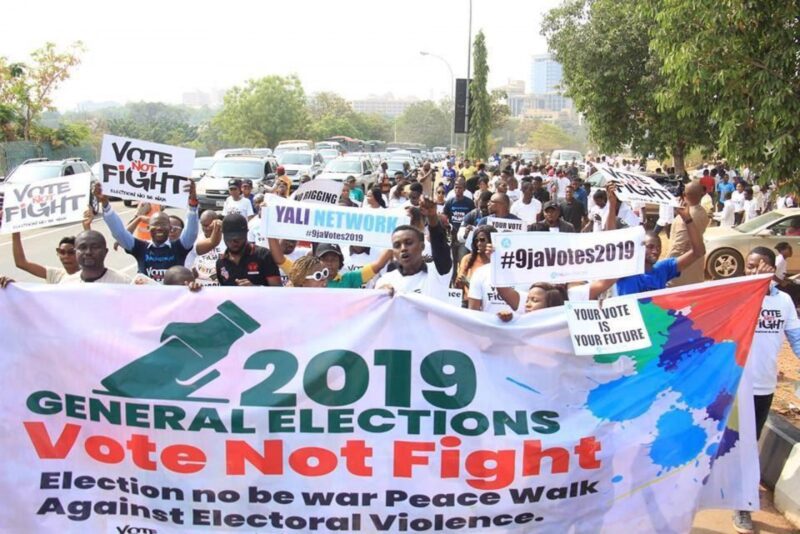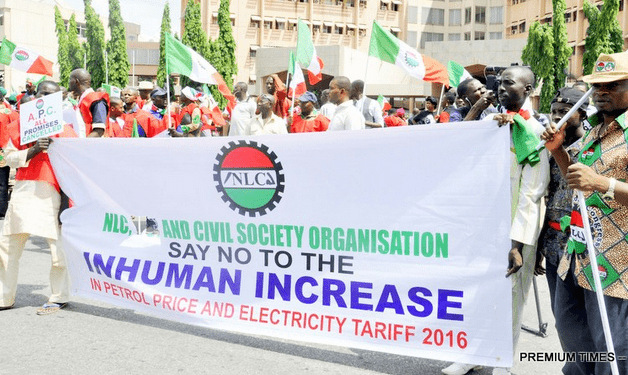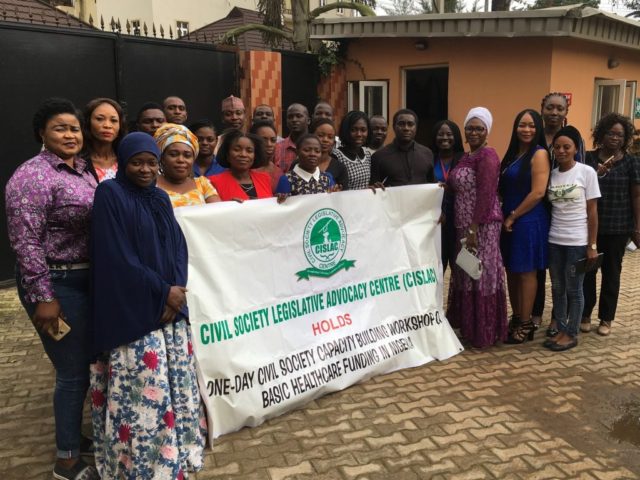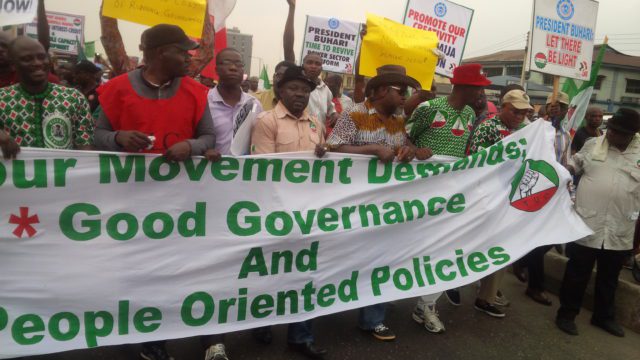National Issues
Current challenges of Civil Society Organisations In Nigeria and the Way Forward -By Aniekpeno John Inyang
Civil Society Organisations need to focus more on social issues that affect the welfare of the generality of the populace. They need to extend their tentacles to youth groups, religious bodies, women rights etc. They also have to adopt digital tools and make active use of the social media to reach out to more people. This will garner more public support for their activities and also increase their membership.

Civil Society Organisations are those non-governmental Institutions or groups that act to promote public welfare. Civil Society Organisations form part of what is known as the Civil sector as opposed to the Public sector (the Government ) or private sector (Business Establishments). The essence of their existence is working to promote public interests and the overall well-being of members of the society, as they do not have the power to make laws or life-transforming policies (that authority is solely reserved for the Government), they come up with other ingenious ways to better the lives of people in the most cost effective ways. The following are some of the roles played by Civil Society Organisations in Nigeria:

- Monitor the government: Civil societies help the people to check Government’s activities and demand accountability. They organize rallies from time to time to compel the government to act in accordance with the law as well as criticise anti-social government programs.
- Link the People to the Government: These Organizations also act as the bridge between the people and the Authorities. Through their campaigns and advocacy, they draw the attention of the government to the needs of the people.
- Inspire and Bring about change: Civil Society groups act as catalyst for positive changes in the socio-economic sphere of the society. They bring about improvements in economic wellbeing by teaching people valuable life-coping skills.
- Enhance the practice of democracy: Civil Society groups also help to strengthen the practice of democracy in any society. These groups do this by advocating for the adherence to strong democratic principles such as Free and fair elections, Independent Judiciary, free press etc.
- Protect Fundamental Human Rights : These groups also help to protect human rights of citizens by advocating for the equitable access to human rights and protesting against acts of human rights abuses. Some of them also offer free legal support to people who have been denied their rights.
- Educate The Public : These groups also educate members of the public on a variety of issues. They keep the people updated on Political and social happenings in the society so the people can respond appropriately to these issues.
- Enhance Popular Participation in Politics: Popular Participation in politics is the active involvement of citizens in the all round decision making activities of their country. Civil Society Organisations promote popular participation in politics by monitoring elections and encouraging the people to participate. This is very useful as it helps in ensuring the right people get into political offices.

There is an active sphere of Civil Society Organizations in Nigeria engaged in various aspects of people’s lives ranging from religious issues, labour union activities, governance issues etc. The following are some civil society organizations currently working in Nigeria:
- Nigeria Labour Congress.
- Alliance for Credible Elections
- Socio-Economic Rights and Accountability Project (SERAP)
- Human Rights Monitor Nigeria
- Youth Initiative for Advocacy Growth & Advancement (YIAGA).
- The Initiative for Equal Rights (TIERs)
- Center for Democracy and Development.
- Civil Society Legislative Advocacy Centre (CISLAC).
- Association of Nigerian Women Business
- Network (ANWBN)
- Niger Delta Budget Monitoring Group (NDEMUBOG).
- Oodua Peoples Congress.
- Arewa Consultative Forum.
- Ohanaeze Ndigbo.
- Pan Niger Delta Forum.

These Organizations have collectively worked hard for the growth and development of Nigeria but not to their full capacity as they have occasionally been impeded by a number of issues. The following are current challenges that Civil Society Organisations face in Nigeria and creative ways to address some of these issues:
1. Lack of adequate funding: Civil Society groups need money to carry out their activities. The lack of this money makes it difficult for them to sponsor their activities.
Way forward: Civil Society groups need to expose themselves more to both internal and external donor agencies. Also the scope of their work should be expanded to attract more funding from philanthropic individuals in the society.
2. Poor Organisation: failure to actualize the goals of Civil Society Groups may oftentimes be a result of the wrong persons getting to lead the Coordination of activities in these groups.
Way forward: Members of Civil Society Organisations need to put in more effort to ensure that the right caliber of persons are selected to lead the Organisation towards the attainment of her goals.
3. Limited room given by the Government to carry out their activities: Tyrannical and Despotic government understand the power civil society Organizations weild and to a large extent are threatened by them. These type of government tend to give very little space for Civil Society Organisations. This has happened many times in Nigeria and has really impacted negatively on the roles of Civil Society Organisations.
Way forward: There needs to be an active citizenry to speak out against dictatorial and oppresive government policies. Civil Society Organisations on their part need to colloborate with each other to create a uniform front against such kinds of oppresive government.
4. Social Crisis and Political Instability: violence leads to the loss of life and destruction of valuable properties. A society plagued by social unrest and crisis of different kinds make it difficult for Civil Society Organisations to engage in their activities as they will not want expose their members to life-threatening situations.
Way Forward: Issues that tend to trigger crisis in the society need to be addressed urgently. Social Instability does not only affect Civil Society Organisations negatively but all aspects of lives. Issues such as injustice, discrimination, poverty usually come to the fore in this instance, their inexistence will go along way in facilitating social development and thereby encouraging Civil Society Organisations to carry out their activities.
5. Poor membership and support from the society: Civil Society Organisations thrive on public support from members of the public. The lack of public support will translate to poor membership which will not be of much help to their activities especially during rallies.
Way forward: Civil Society Organisations need to focus more on social issues that affect the welfare of the generality of the populace. They need to extend their tentacles to youth groups, religious bodies, women rights etc. They also have to adopt digital tools and make active use of the social media to reach out to more people. This will garner more public support for their activities and also increase their membership.


















